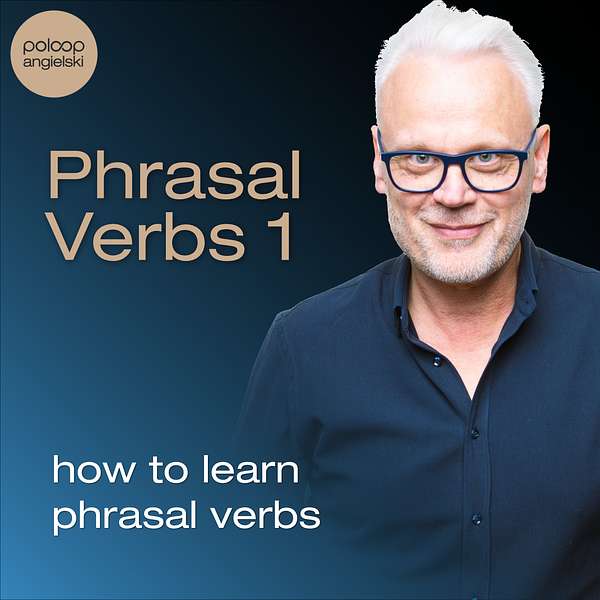
PoLoop Angielski
PoLoop Angielski
Episode 14. How to Learn Phrasal Verbs
Use Left/Right to seek, Home/End to jump to start or end. Hold shift to jump forward or backward.
Phrasal Verbs are a challenge to learners of English. They are difficult to master, but learning them is definitely worth the effort. In this episode, which is the first one in the series about Phrasal Verbs, I recommend looking at them not as a random combinations of verbs and particles, but trying to discover what lies behind such combinations. To illustrate this, we will discover and practise how UP is used in Phrasal Verbs to stress the idea of completing or finishing something.
Sentences used as examples:
COME IN
What time does your train come in?
Short skirts are coming in.
COME ROUND
It took me a long time to come round.
Meanings of come round:
1. to come to a place, especially somebody's home, to visit for a short time
2. to change your opinion
3. to become conscious again
Phrasal Verbs with UP:
- tidy up
- drink up
- eat up
- heat up
- pack up
- dry up
- use up
- heal up
Other words and expressions in this episode:
- the sheer number of something (The word sheer is used to stress that the size, amount of something is huge. In here, the very number of Phrasal Verbs is huge.) PL: sama liczba / sama ilość czegoś
- daunting (Something that is daunting makes you feel slightly afraid or worried about dealing with it.) PL: zniechęcający, przytłaczający
- ambiguous (If you describe something as ambiguous, you mean that it is unclear or confusing because it can be understood in a few ways.) PL: wieloznaczny, dwuznaczny
- random (If something is random, it doesn't show any pattern or rule.) PL: przypadkowy, losowy
For more, visit: PoLoop Angielski Blog
Drop me a line: jacek@poloopangielski.pl
And join us on social media: Instagram and Facebook
Would you like me to help you master your English? You can find out more about my courses here.
